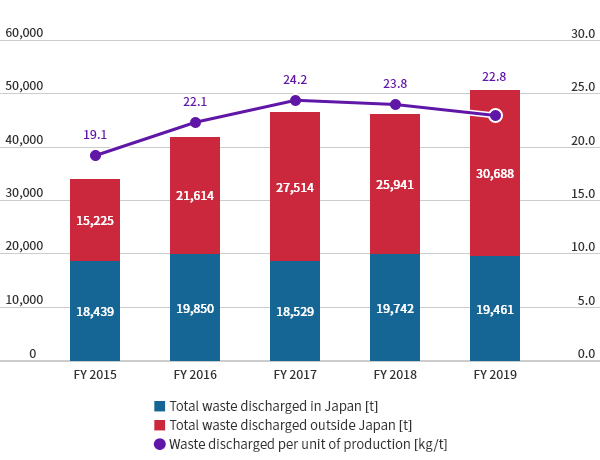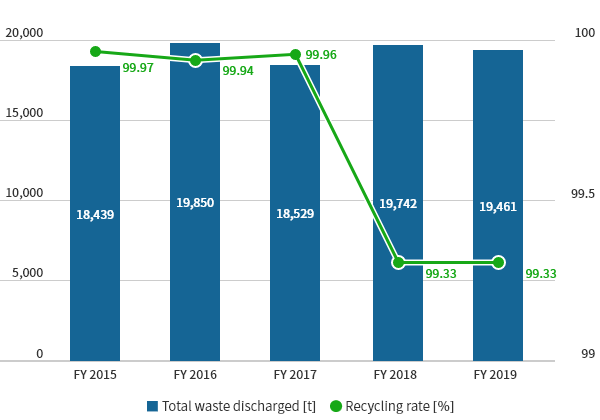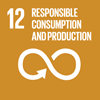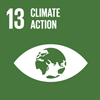Waste Reduction
Focus SDGs
Management information
Relation between themes and business activities
As a natural consequence of Fuji Oil Group’s business characteristics, the Group’s manufacturing processes produce waste. Most of the waste is sludge contained in wastewater from the plants and waste activated clay generated after adsorbing impurities in the oil and fat refining process. We recognize that our initiatives for waste reduction will lead us to efficiently use materials and energy resources necessary for our business activities and consequently contributing to environmental conservation.
Basic approach
With full recognition of the relation between waste and its business activities, the Fuji Oil Group aims at reducing waste in its product manufacturing processes based on the Basic Policy of Environmental Integrity.* The Environmental Vision 2030,*2 to be fulfilled by 2030, shows our Group-wide commitment to waste reduction.
* Refer to the URL below for details on the Basic Policy of Environmental Integrity.
https://www.fujioilholdings.com/en/about/policy/
*2 Refer to the URL below for details on the Environmental Vision 2030
https://www.fujioilholdings.com/en/csr/environment/management/
Promotion system
We promote our initiatives to reduce waste under the supervision of the Chief “ESG” Officer (C“ESG”O). Moreover, the ESG Committee*, which is an advisory body to the Board of Directors, confirms the progress and results of these initiatives as a priority theme for ESG management.
* Refer to the URL below for details of the ESG Committee.
https://www.fujioilholdings.com/en/csr/approach/
Objectives / Results
2030 targets
In FY 2018, we formulated the Environmental Vision 2030 with 2030 as the target year. In the vision, we set a Group-wide target of reducing base-unit waste* by 10% from the base year of 2016 by 2030. We also set a target for a resource recycling rate of 99.8% or higher in our business operations in Japan by 2030.
* Base-unit waste: Amount of waste per unit of production
Progress toward 2030 targets
In FY 2019, base-unit waste discharged by all Fuji Oil Group companies decreased by 4% year on year and increased by 3% from the base year. While base-unit waste discharged by Group companies in Japan increased by 0.3% year on year, base-unit waste discharged by Group companies outside Japan decreased by 2% year on year. The main factor behind the increase in base-unit waste from Group companies in Japan was an increase in waste activated clay, sludge and plant residues due to production growth. Meanwhile, the main factor behind the decrease in base-unit waste from Group companies outside Japan was that the increase in production volume was more significant than the increase in waste. The recycling rate in Japan was 99.33%.
FY 2019 objectives
- Establishing optimal methods for collecting and analyzing data on waste and disclosing accurate information
FY 2019 results
In FY 2019, the total amount of waste discharged by Group companies in Japan was 19,461 tons, a 1.0% decrease from the previous fiscal year. In the same fiscal year, the total amount of waste discharged by Group companies outside Japan was 30,688 tons, an 18% increase from the previous fiscal year. The main factor behind the decrease in the total amount of waste from Group companies in Japan was each plant’s waste reduction activities. Meanwhile, the main factor behind the increase in the total amount of waste from Group companies outside Japan was that the amount of sludge and plant residues increased, that a certain amount of waste activated clay was no longer collected by any parties primarily due to the revision of government regulations, and that Blommer Chocolate Company (U.S.) joined the Fuji Oil Group.
From now on, waste reduction across the Fuji Oil Group will require collecting more accurate data in a streamlined way. We are assessing a new data collection system and planning to introduce it in FY 2021.
Total annual waste discharged and waste discharged per unit of production

Total annual waste discharged and recycling rate at Fuji Oil Group companies in Japan

Next Step
We will continue to reduce waste across the Fuji Oil Group by using plant residues effectively, promoting the reuse of industrial waste as valuables and other means, with the aim of fulfilling the Environmental Vision 2030.
Specific initiatives
Waste reduction initiatives
Below are major waste reduction initiatives implemented by Group companies in FY2019.
- Treating sludge by pressing or drying to reduce the volume of waste at Shandong Longteng Fuji Foodstuffs Co., Ltd. (China), Tianjin Fuji Protein Co., Ltd. (China) and Fuji Oil (Singapore) Pte. Ltd.
- Using oil-containing waste as green energy resource at Fuji Oil Europe (Belgium)
- Promoting activities to sell waste as renewable energy resource at Blommer Chocolate Company (U.S.)
Food recycling initiatives
Group companies in Japan are working to reuse food waste pursuant to the Food Recycling Act. The amount of food waste generated was approximately 34,410 tons in FY 2019, increasing by approximately 2,078 tons from the previous fiscal year. The recycling rate increased by 2 percentage points from the previous year to 99.3%.
For the food Industry, the Act sets a target of 85% reuse or higher of recyclable food resources. The Fuji Oil Group exceeded a food recycling rate of 97.3% in FY 2007, when it first set a food recycling target, and the Group has since maintained the rate at such or higher level. We will continue our efforts to maintain this level in the future.

